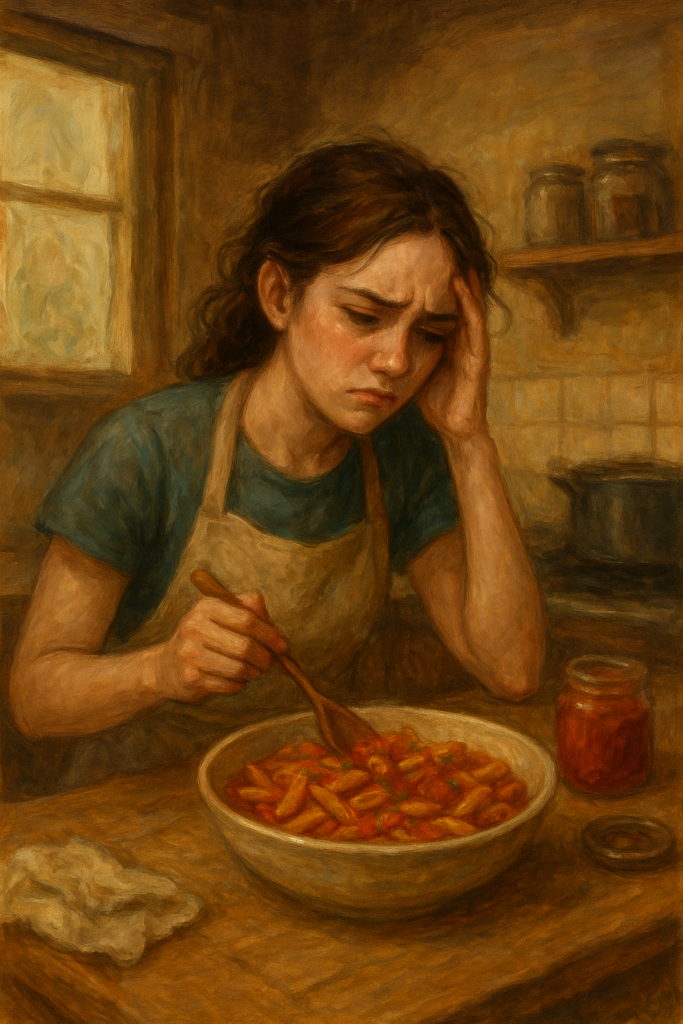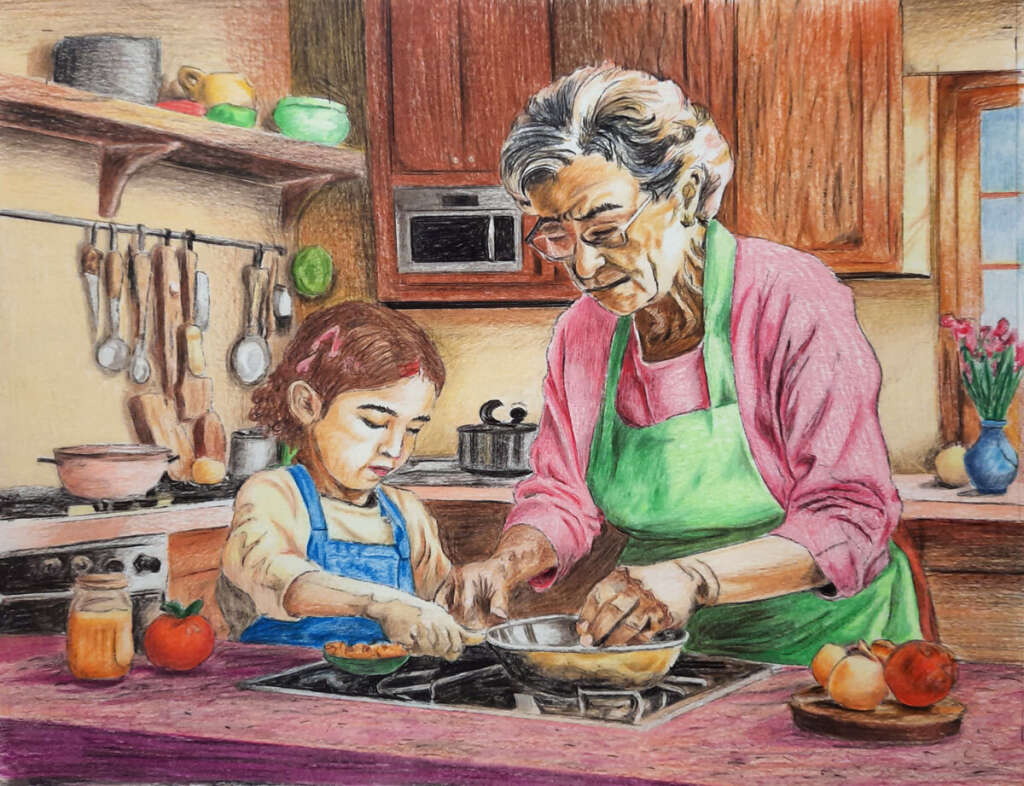Home takes different shapes for different people. It can be a person, a memory or a period of time that you return to physically or emotionally for its comfort or familiarity. For me, “home” simply means clinging on to the comfort of a space. This space might not always be tangible. Therefore, it has always been difficult to define what home is since the feeling of home is profoundly personal.

Therefore, my idea of home was initially formed when I watched the movie, Ratatouille(2007). The food critic in the movie praises the chef who also happens to be a rat. He cooks the dish with the same name of the movie which is the childhood favourite of the critic. After enjoying the dish, the critic says that “it reminded him of his mother’s cooking which brought back memories of his childhood home.” It evoked a past memory in me which is linked to a person whom I used to cook with (honestly it was me watching her cooking almost every time). So, I introduce you all to my home. Home is the time period that I spent with my grandmother in the kitchen of *mahagedara, eating her special chicken pasta. It has been eight years since I lost that comforting feeling of her and the taste.

After the final goodbye, I still find myself longing and clinging onto a lost taste when Rushdie’s “Imaginary Homelands” came to remind me that ‘it is not merely about the taste but about the space that I was able to share with a person that I loved wholeheartedly.‘ As Rushdie mentions, “even at the risk of being mutated into pillars of salt,” with this biblical reference he draws back to the idea on how there is always a risk in revisiting memory and nostalgia for one might get stuck in the past. It is dangerous because one might neither move forward nor live in the present moment. Yet, we would still take that risk of returning to the home that we have created in our memory. Similarly, I would always return to my teenage self for a glimpse of the kitchen. The place where I would gossip with my grandmother. The place where I would be given a spoon of curry or sauce to taste and would be endowed with the grave and great responsibility of adding a pinch of salt to the chicken curry.

Moreover, I would make futile attempts to recreate the taste over the time of eight years and every failed attempt reminds me that there is some kind of lack; a loss of a significant taste. It might be due to the nature of memories according to Rushdie’s ideas, that a memory is “fallible” and “fragmented”. Though I strive to recreate the same taste from a recipe in my mind, the memory about my grandmother’s cooking is made up through a series of past moments that I spent with her. Thus, my memory has been built up piecemeal and eight years is a long time period within which I have added parts of my imagination to the memory as well. So, the recipe I remember may not be the same as my grandmother’s. Every time I fail, I am disappointed and feel guilty because I feel like I am creating a distance from the sense of “my home.” Every now and then, I feel isolated in the same kitchen once we shared together.

However, finally I am convinced that I am not alone in the struggle of “fighting against forgetting” a memory related to a person who was dear and near to me. I also know that it is worth having a sense of “home” to belong to although it might come in different shapes. At the end of the day, whether it is fragmented or whole, a person or a place, bitter or sweet, no matter what shape it takes, isn’t home the space where our heart lies?
*mahagedara – ancestral/family home
References:
Rushdie, Salman. Imaginary Homelands: Essays and Criticism 1981–1991. Granta Books, 1991, pp 9 – 15, https://shorturl.at/2Tb7R.



No Responses